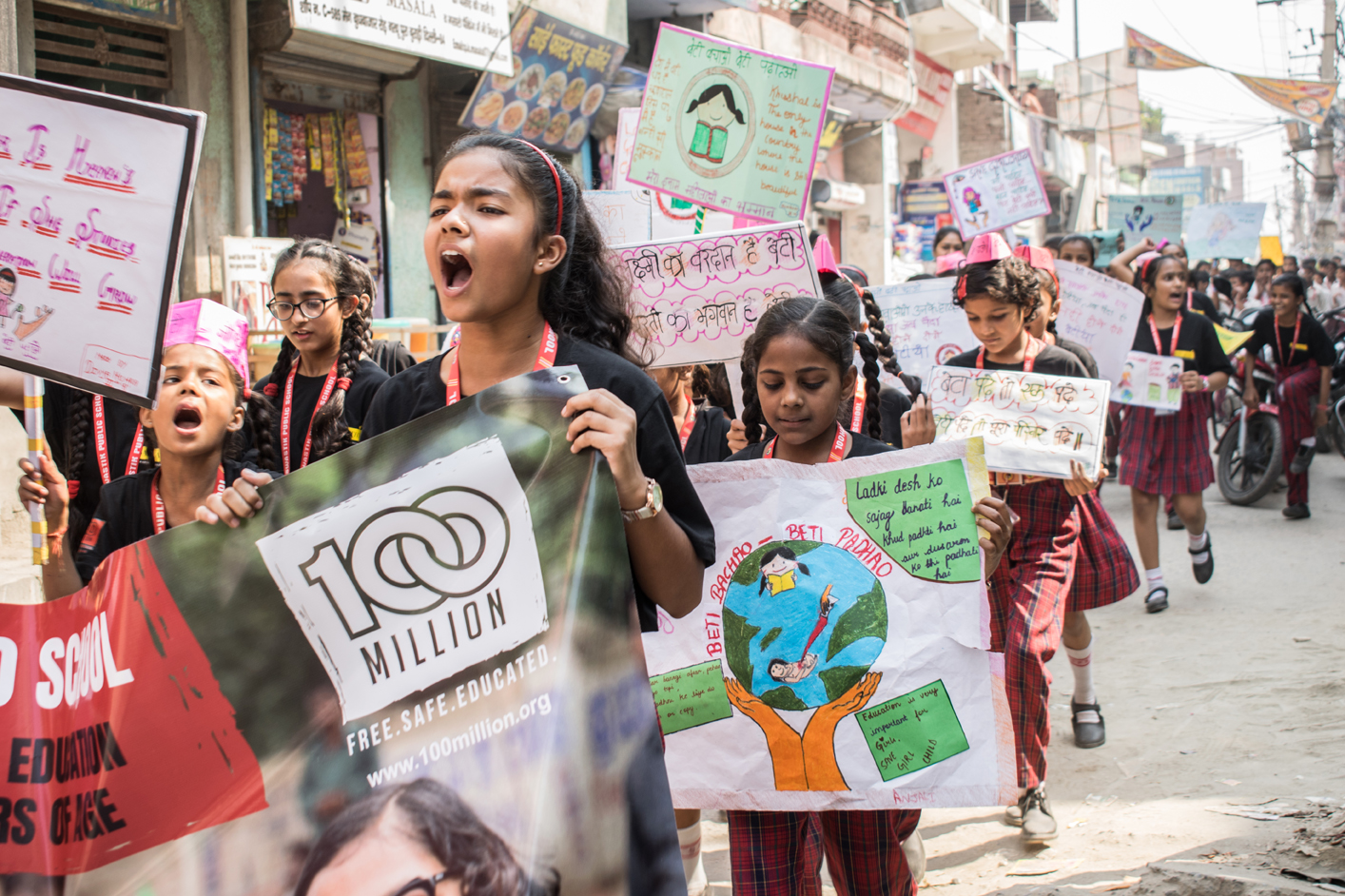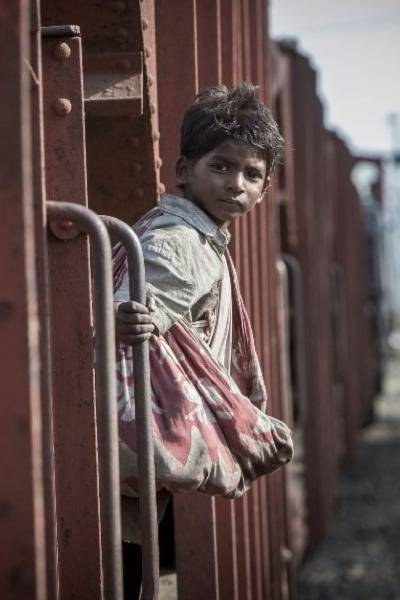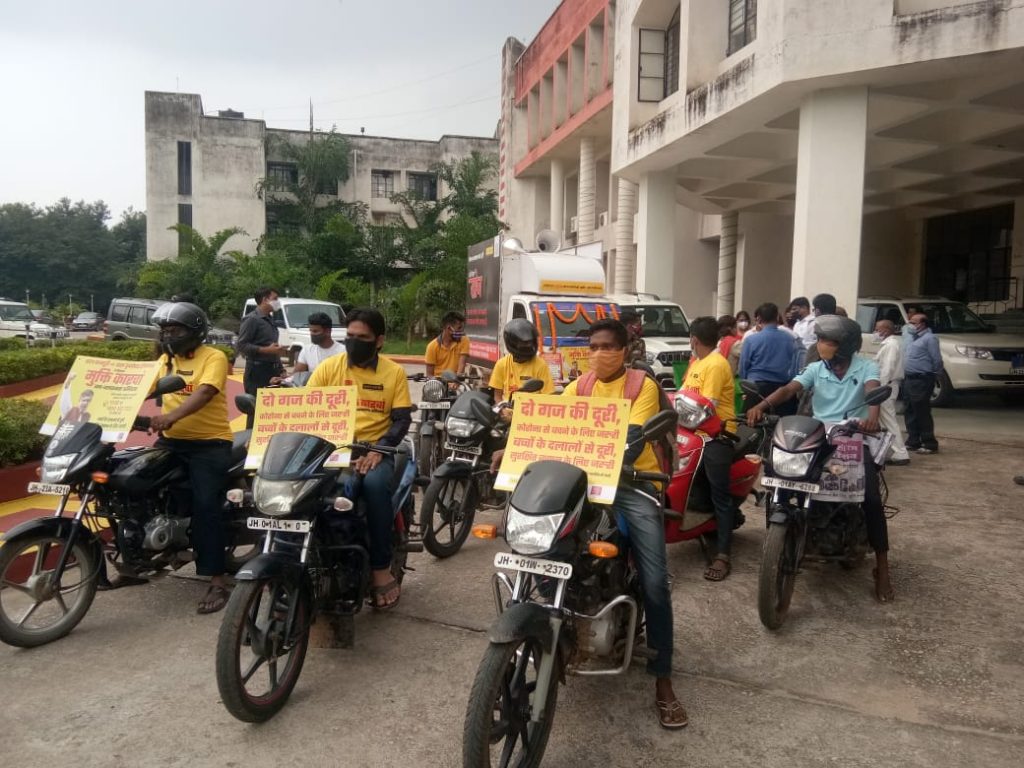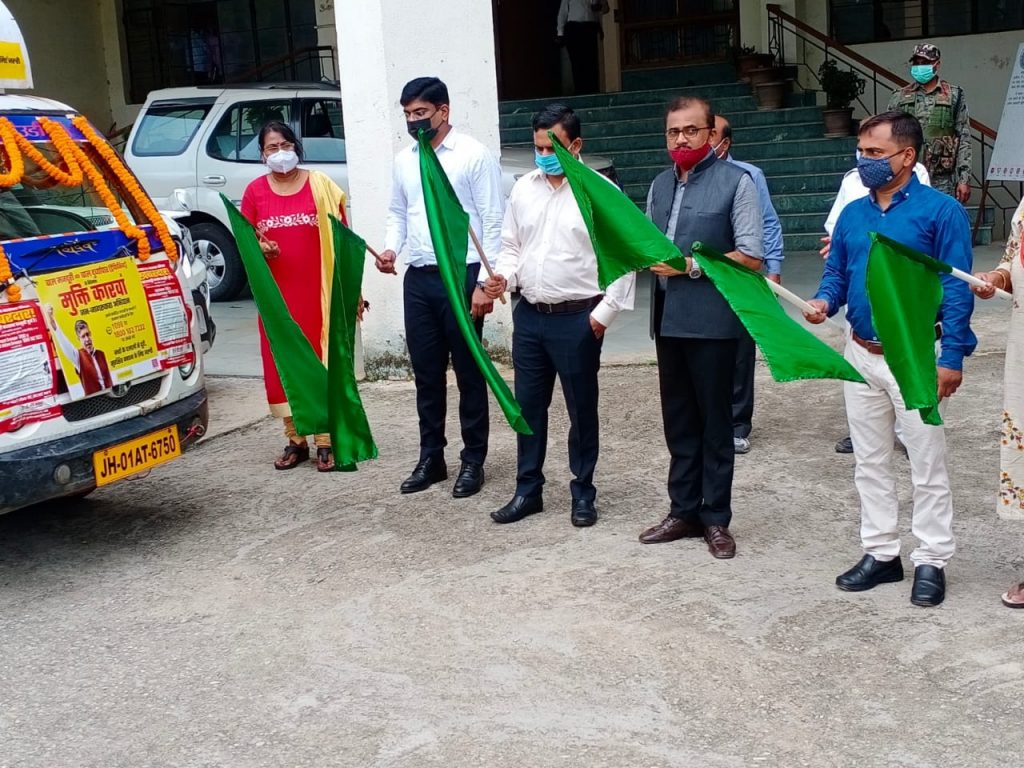KSCF Working To Stop Child Trafficking in India
Kailash Satyarthi Children’s Foundation (KSCF) founded by Nobel Peace Laureate Kailash Satyarthi is a leader in child protection and child development. Being a Best Child Trafficking NGO, We initiated a Campaign Against Ending Child Rape & Child Trafficking in India.
We engage, inspire and mobilise people from diverse backgrounds to build a child-friendly world Building on Mr. Satyarthi’s path breaking work of 40 years on promoting child education, KSCF works in partnership with multi-stakeholders both at the grassroots and global level, with governments, businesses, civil society, communities, and children.
Sponsor a child’s education & see the happy childhood they deserve. Your small contribution will make a big difference in their lives!
AGAINST CHILD TRAFFICKING
SINCE 2012
trafficking
Strategic Action
- Action in 100 high-risk districts for end child trafficking in India.
- Survivor-Led intelligence network in 2000 most vulnerable villages in 20 high-risk districts
- Intensive capacity building and strengthening the survivor-led intelligence network by survivors, law enforcement agencies, stakeholders responsible for strengthening child protection mechanism
Our Mission & Our Schemes
Kailash Satyarthi Foundation is the best child sponsorship organization that disseminates best practices relating to child protection and rights. We at KSCF believe Freedom is non negotiable. We’ve pledged to eradicate child trafficking, child labour and child marriage right at its source along with addressing other cross-cutting issues of education, child sexual abuse, water, sanitation, hygiene and livelihood.
What is BMG (The Bal Mitra Gram™ (BMG™)?
BMG (The Bal Mitra Gram™ (BMG™) Child Friendly Village - working towards preventing child exploitation in rural villages . Taking democratic actions to empower the community with girl child education. This model breaks the systemic barriers of oppression, in access to rights and injustice.
What is Bal Mitra Mandal (BMM)?
Bal Mitra Mandal (BMM) child friendly urban slums. A concept that will ensure holistic development of children living in urban slums providing Girl child education. Empowering children and their communities to collectively work towards securing their rights and protecting them.


How TO STOP CHILD TRAFFICKING in India?
Kailash Satyarthi Children’s Foundation (KSCF) launched one of the largest survivor-led campaigns on bicycles and bikes across 20 districts in Bihar and Jharkhand in 2020-21 to raise awareness about evils like child trafficking, child labour, and child sexual abuse.
Survivor-led intelligence network on wheels which has been extremely successful in the past in creating awareness on issues relating to end child trafficking, in trafficking-prone areas of India since 1997.
Survivor story
Sahej (name changed) was recused by Bachpan Bachao Andolan in 2009, our sister organisation 12 yrs ago is right now leading the campaign against ending child trafficking in Bihar through the survivor-led intelligence network.
The awareness initiative has engaged volunteer activists in vulnerable villages. Their inspiring action and intelligence have led to the rescue of hundreds of children and the arrest of traffickers during the Covid-19 induced lockdown.
CHILD TRAFFICKING In india


Child trafficking is defined as the “recruitment, transportation, transfer, harbouring or receipt” of a child for purpose of exploitation.
Globally, one in every three victims of human trafficking detected is a child, but in low income countries, children account for half of the victims detected, most of them trafficked for forced labour. Both girls and boys are vulnerable to being trafficked. However, girls are disproportionally targeted and made to deal with life-long effects of gender inequality and gender-based violence.
Child Trafficking In India, disadvantaged communities are most vulnerable to trafficking. Parents of children from these communities are either misled or lured due to their poor socio-economic condition which eventually compel them to ‘send’ or ‘sell’ their children for ‘better livelihood options’. Traffickers promise daily wages to parents and transport them to big cities where they are often treated as commodities. Now Best Child trafficking NGO KSCF addressing child trafficking in India. Just support us to prevent & stop child trafficking in India.
Children are often trafficked for commercial sexual exploitation or for labour – such as domestic servitude, agricultural work, factory work and mining, or they are forced to fight in conflicts. The most vulnerable children, particularly refugees and migrants, are often preyed upon and their hopes of education, a better job or a better life in a new country are used as baits. Child trafficking in India also takes form when children are forcefully engaged in begging rackets and other such activities.
Poverty is one of the main causes of child trafficking. Economically disadvantaged families sometimes have no choice but to abandon or ‘sell’ their children, leaving them in the hands of traffickers. Child trafficking in India is particularly prominent in areas struck by natural disasters. Illiteracy and lack of education make families more vulnerable to traffickers. Some of the most threatened also include children whose births were never registered. Many a times, early marriage of children is also carried out as a camouflage for child trafficking.
Trafficked children experience many types of abuse and neglect. Traffickers use physical, sexual and emotional abuse as a form of control. Children and young people are also likely to be physically and emotionally neglected and may be sexually exploited. Children may feel distressed and alienated if they’ve been separated from their families, friends, communities and cultures. They have virtually no access to education or opportunity for social and emotional development.
Thousands of women and children are trafficked every day. Within the overall profile of trafficking in South Asia, India is a country of both transit and destination. There is a considerable degree of internal trafficking as well as some trafficking from India to Gulf States and to South East Asia. Sale of children and their movement across the state borders takes place within the country too.
According to the National Crime Records Bureau (NCRB), there were about 2,200 cases of child trafficking in 2019, of which 95 per cent accounted for internal trafficking. As per official figures, 6,616 victims were reported to have been trafficked, including 2,914 children. However, activists say that the actual figure could be much higher as many victims do not register cases with the police, largely because they do not know the law or fear traffickers.
According to a report by the National Human Rights Commission, 40,000 children are abducted each year in India, leaving 11,000 untraced. NGO’s estimate that between 12,000 and 50,000 women and children are trafficked into the country annually from neighbouring nations as a part of a thriving sex trade. Now KSCF is working against child trafficking in India and worldwide people are supporting us.
According to the annual National Crime Record Bureau’s (NCRB) ‘Crime in India’ 2019 report, a total of 73,138 children were reported missing. The report also states that the number of missing children increased by 8.9% in 2019. In 2018, the number of missing children was 67,134.
Every eight minutes, a child goes missing in India. Millions of missing children may have been trafficked, who end up in forced labour, slavery and sex work.
The top three states with highest number of human trafficking incidents based on number of cases reported are West Bengal, Rajasthan and Gujarat and the top three states with highest number of human trafficking incidents based on crime rates are West Bengal, Daman and Diu and Goa. States of Maharashtra, Uttar Pradesh, Chhattisgarh, Haryana, Uttarakhand, Mizoram and Nagaland also regularly top child trafficking lists.
Indian laws do not have a legal definition of child trafficking. The Immoral traffic (Prevention) Child Trafficking Act deals only with trafficking of minors for prostitution. However, other laws are present which can assist in taking action against child trafficking including the Juvenile Justice Act 2000, Andhra Pradesh Devadasi’s (Prohibition of Dedication) Act, 1988, Bombay Prevention of Begging Act etc.
Stepping up its fight against the scourge of human trafficking, Kailash Satyarthi Children’s Foundation is advocating for the urgent passage of the Trafficking in Persons (Prevention, Care and Rehabilitation) Bill, 2021, which is a comprehensive law on trafficking in India.
The Immoral Traffic (Prevention) Act, 1956 (ITPA) is the premier legislation for prevention of trafficking for commercial sexual exploitation.
Criminal Law (amendment) Act 2013 has come into force wherein Section 370 of the Indian Penal Code has been substituted with Section 370 and 370A IPC which provides for comprehensive measures to counter the menace of human trafficking including trafficking of children for exploitation in any form including physical exploitation or any form of sexual exploitation, slavery, servitude or forced removal of organs.
Protection of Children from Sexual offences (POCSO) Act, 2012, which has come into effect from November 14, 2012, is a special law to protect children from sexual abuse and exploitation. It provides precise definitions for different forms of sexual abuse, including penetrative and non-penetrative sexual assault, sexual harassment.
There are other specific legislations enacted relating to trafficking in women and children Prohibition of Child Marriage Act, 2006, Bonded Labour System (Abolition) Act, 1976, Child Labour (Prohibition and Regulation) Act, 1986, Transplantation of Human Organs Act, 1994, apart from specific Sections in the IPC, e.g. Sections 372 and 373 dealing with selling and buying of girls for the purpose of prostitution.
State Governments have also enacted specific legislations to deal with the issue. (e.g. The Punjab Prevention of Human Smuggling Act, 2012)
Mukti Caravan or the Campaign on Wheels is the flagship campaign to combat violation of child rights with special focus on child trafficking and child labour by creating awareness among the citizens on these issues.
Led by youth who have been withdrawn from child labour by tireless efforts of Nobel Peace Laureate Kailash Satyarthi, the Mukti Caravan moves across the country, spreading awareness about the organised crime of child trafficking and other forms of exploitation of children through interactions, nukkad nataks or street corner plays, wall writings, pamphlet distribution and screening of audio-visual materials.
KSCF’s Bal Mitra Gram (BMG) is an innovative and transformative grassroots solution to prevent child trafficking and exploitation. It empowers children to take democratic actions to protect their rights and enables parents and other stakeholders to stand up for the rights of children and build a protective community.
KSCF also releases ground based evidences, researches and reports and uses the same for advocacy with the Government and Parliamentarians at national and local level for creation of robust laws and policies on trafficking and ensuring their effective implementation.
- Raise your voice against child trafficking through media, social media, programmes and awareness raising activities
- If you spot children being transported or being employed in a domestic home or factory or a shop, report it at our Complaint Cell – 1800 102 7222 or dial Childline – 1098
- Report child pornography immediately
- Support Kailash Satyarthi Children’s foundation work by donating to our campaigns and programmes on child trafficking
- Follow our work on social media
Operation Khoj
Kailash Satyarthi Children’s Foundation in collaboration with Khunti District administration and Khunti Police in Jharkhand is working towards creating awareness among the masses on child trafficking, child labour, child sexual abuse etc under a dedicated intensive campaign called “Operation Khoj” with the objective to identify the missing children in the district.
As a part of the Operation Khoj, the VLCPC meetings will be held in each revenue village under the guidance of the WCD department where the discussion would be focused on “Identifying the children who have moved out of the village in search of job opportunities/ missing children/ trafficked/POCSO survivors”.
Child Welfare Police Officers of the Police stations will be given the responsibility of meeting the mukhiyas of the targeted panchayats and prepare a list of these vulnerable children. The officers will also be entrusted with the task of collecting all relevant details pertaining to the missing children, like information about when they went missing, who took them, where they are likely to be found and other details.
The operation will not only help police track the missing and trafficked children, but will also help establish a connection between community and police.
A team will be formed under the supervision of SP and DC to monitor the activities of Operation Khoj in the villages.




Give children the happy childhoods they deserve
Being India’s most trusted Girl Child Education NGO in India we believe that every Indian citizen is an important stakeholder of the Justice For Every Child campaign. Your donation will enable the creation of an accountable and sustainable child protection ecosystem to keep our children safe.
